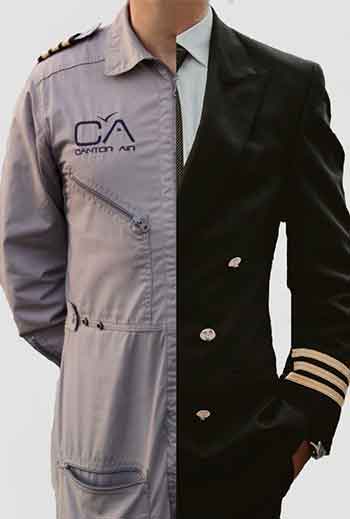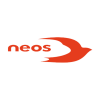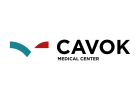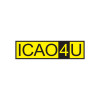ATPL Modular Course to Become a Professional Pilot
Info
- Duration: 24 months
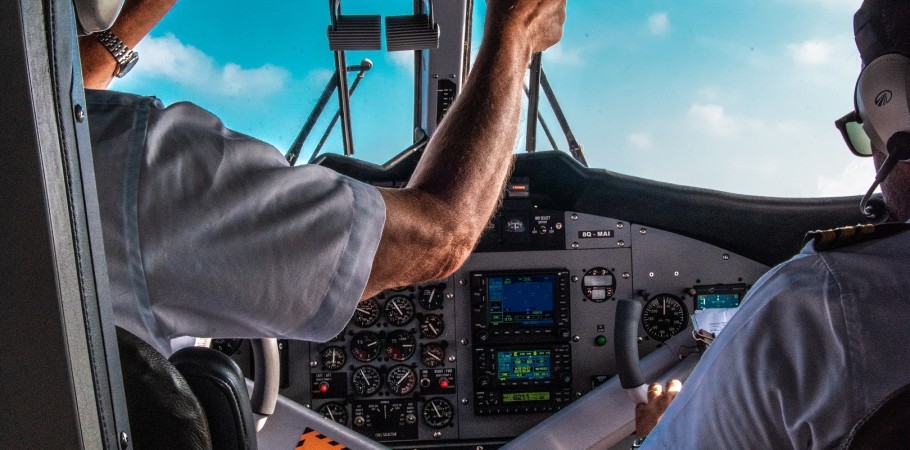
The ATPL (Airline and Transport Pilot License) course is the modular course to become an airline pilot.
The course promoted by the flight school Cantor Air ATO (Approved Training Organization) is composed by a modular structure, that is, based on a step-by-step learning of the various licenses and ratings, starting with the basic ones, and ending with the commercial/advanced ones. This choice is the basis of the teaching methodology of Cantor Air flight school, certified by EASA to conduct courses for professional Pilots.
Becoming an airline pilot: a comprehensive path suitable for all requirements
In order to become an airline pilot, one must have completed, and thus be in possession of, the necessary certification (or various modules) that go into various areas of training, both practical and theoretical, required by current regulations.
Cantor Air flight school includes a wide range of courses in its educational programs. By choosing the modular ATPL ";Full Immersion" course offered by ATO, the student will be able to obtain all the necessary licenses to become a Professional Pilot, followed on his journey by the best experts in the field.
Should the student already hold certain licenses, Cantor Air will find the most suitable solution for him/her, shaping his/her training ad HOC, respecting his/her needs and always maintaining the very high standard that distinguishes the ATO
Modules required to become an airline pilot under the Cantor Air program
The modules addressed in Cantor Air to become an airline pilot are:
- PPL (Private Pilot License)
- RATING FOR DIFFERENCES (machine passage on P2008 or C152)
- HOURS BUILDING (filling hours)
- CHECK HOURS BUILDING (semi-annual check with instructor)
- ATPL THEORY (Airline Transport Pilot License - theory)
- AREA 100 KSA
- SEP COMPLEX RATING (Single engine piston - retractable landing gear and variable pitch propeller qualification)
- NIGHT QUALIFICATION (night flight rating)
- IR (Instrument Rating)
- MEP and IR-ME (Multi Engine Piston qualification and transition of IR to Multi Engine)
- CPL (Commercial Pilot License)
- A-UPRT
- MCC (Multi Crew Cooperation)
Entry Requirements:
- Be at least 16 years of age before starting the PPL
- Be at least 18 years of age before starting the ATPL
- Be in possession of First-class mental and physical fitness certificate issued by a medical specialist in aviation medicine (AME).
- Be in possession of sufficient knowledge of mathematics and physics to facilitate understanding of the course
- Possess a fair knowledge of the English language.
The path in Cantor Air starts with the PPL (Private Pilot's License), and includes 119 hours of compulsory theory and 45 hours of flying in Cessna 152 or Tecnam P2008JC. The choice of aircraft type is chosen by the school. The theory part is carried out continuously, conducting mandatory afternoon classes from Monday to Friday, plus Saturday (morning or afternoon). The subjects covered are:
- AIR LAW AND ATC PROCEDURE
- MASS & BALANCE
- AIRCRAFT GENERAL KNOWLEDGE
- FLIGHT PLANNING & MONITORING
- HUMAN FACTOR
- METEOROLOGY
- GENERAL NAVIGATION
- OPERATIONAL PROCEDURES
- PRINCIPLES OF FLIGHT
- COMUNICATIONS
Total Hours: 119
The flight part, on the other hand, is carried out according to the individual availability of the aspiring pilots. A part of the practical training is carried out in "Dual Command," thus with instructor on board, and the other part in "PIC" (Pilot in Command), thus solo. This module, which in Cantor Air starts twice a year (March and September each year), is completed in 3 to 6 months, and allows obtaining the PPL License following a theoretical and practical examination with ENAC. The Pilot Private Licence (PPL) is the first step needed to start flying an aircraft from scratch and will allow proceeding to the next modules of the modular program to pursue a career as a Pilot.
Once the first license (PPL) is obtained, the student is placed in the ATPL THEORY course, which, in the Cantor Air program, includes 650 hours of theoretical lessons, divided into the 13 examination subjects required by ENAC/EASA. This module, which in Cantor Air begins twice a year (May and November of each year), allows holders of the newly obtained PPL License to continue directly without interruption. The ATPL theoretical part takes place continuously, conducting morning classes with mandatory attendance from Monday to Saturday, for a total of about 6 months of classes. The subjects covered are:
- AIR LAW
- AIRCRAFT GENERAL KNOWLEDGE
- AIRFRAME/SYSTEMS/POWER PLANT
- AIRCRAFT GENERAL KNOWLEDGE
- INSTRUMENTATION
- MASS AND BALANCE PERFORMANCE
- FLIGHT PLANNING AND MONITORING
- HUMAN PERFORMANCE
- METEOROLOGY
- GENERAL NAVIGATION
- RADIO NAVIGATION
- OPERATIONAL PROCEDURES
- PRINCIPLES OF FLIGHT
- COMMUNICATIONS
Total Hours: 650
Upon completion of the ATPL THEORY course, students undergo the 13 theoretical ATPL exams with ENAC, one for each subject studied in the theory course, which must be completed in academic timelines dictated by current regulations.
In conjunction with ATPL theory, the AREA 100 KSA course will be held (learn more about the AREA 100 KSA course) . A course, amounting to 15 theory hours, made mandatory by EASA from 2022, which translates to Knowledge, Skills, Attitude: the combination of three fundamental elements in the training of a pilot with a capital "P". PLEASE NOTE: Cantor Air flight school also offers the ATPL THEORY course in "Distance Learning" mode, should the candidate be unable to attend the daily classes, thanks to the multimedia platform provided by the ATO and certified by the institution.
Learn more about the ATPL THEORY course
Conjointly with the ATPL module, the Trainee will continue to fly, conducting fill-in hours (hours building) and other flight courses, which we will see in the next step.
As soon as the PPL course is completed (including final exams) and the PPL (A) license is obtained, the Cantor Air student, starts the phase of filling hours, better known as Hours Building.
The Hours Buildings, performed as PIC (Pilot in Command), which are carried out from the conclusion of the PPL (and thus from its attainment) until the beginning of the CPL phase, are a mandatory requirement for access to subsequent modules. In fact, before the start of the CPL phase for example, the Trainee must have achieved a total experience of at least 100 hours in PIC (Pilot in Command).
This module represents a very important milestone for each student, in which they will be able to try their hand at so-called CROSS-COUNTRY flight missions (navigations over different airports), which will allow them to increase their piloting experience, carrying out flights even outside national borders (e.g., France, Austria, Croatia, Slovenia, etc.).
At the ending of each PPL course, each student will have the opportunity to take the AEROPLANE DIFFERENCE TRAINING on the type of aircraft he/she did not use during the PPL practical course (P2008 or C152) so that he/she will be qualified to pilot both aeroplanes provided by ATO Cantor Air for hours buildings: CESSNA C152 and TECNAM P2008 getting used on both type of avionics: analog and digital.
Given the importance of the topic of SAFETY for Cantor Air school and given the HOURS BUILDING phase conducted independently by the Student Pilots, SEMESTRAL CHECK was introduced in the HOURS BUILDINGS phase in which, each student on a semi-annual basis, must confirm to the instructor in charge, the suitability for PIC flight, through a "check" flight.
The first rating in Cantor Air's modular ATPL "Full Immersion" program is the VP RU (Variable Pitch-Retractable Undercarriage) rating, through which the Student Pilot is trained in the use of the retractable undercarriage and variable pitch propeller. This rating is necessary to advance to the next module NIGHT RATING, which allows the student to fly an aircraft from dusk to dawn, then train in night take off, navigation and landing practices. In this phase, the student flies Cessna 182 and Piper PA28R aircraft.
Then the IR SEP (Instrument Rating) module begins in which the student is qualified in the functions of a responsible pilot, on single-engine aircraft in instrument flight conditions (IMC) and according to IFR (Instrument Flight Rules), that is using only the on-board instrumentation. This module initially involves the extensive use of the FNPT II ALSIM ALX simulator, which turns out to be a perfect platform for this phase, and then transitions to the use of PA28R aircraft while maintaining the same mission profiles used previously in the simulator. The practical part covers instrument missions on domestic and international airports to perform ILS procedures, VOR NDB, and especially the new concept of PBN (Learn more about Performance Based Navigation) procedures. Highly used are the airports of Bergamo, Linate, Montichiari, Verona, Parma, Malpensa, Turin, and Genoa. The total number of hours provided in this module are as many as 50, following which there will be a new practical exam with an external ENAC inspector, which will lead to obtaining the IR qualification.
Check out how the simulator ALSIM ALX works
Once qualified in IR, the student progresses further, following a new "transition" module but this time on even more complex machines: multi-engine aircraft. The purpose of this phase is to acquire the MEP (MULTI ENGINE PISTON) rating, which enables the Student Pilot to handle normal and emergency flight procedures (e.g., with an engine out) on multi-engine aircraft using on-board instrumentation for radio assistance. The aircraft used by Cantor Air for this module are Piper PA34s, complex machines that, because of this very characteristic, allows the Student Pilot, the acquisition and achievement of exceptional skills. The student in this phase is trained through 11 hours of flight time in both the basic and IR parts of instrument flying. The MEP and IR-ME rating is, once again, awarded following the passing of an additional practical examination on PIPER PA34 aircraft with an external ENAC Inspector, which will lead to the attainment of the MEP and IR ME rating.
At this point, the student has reached the final milestone of Cantor Air's ATPL "Full Immersion" modular program, that of the CPL (Commercial Pilot License) module. This "commercial" phase is conducted on SEP COMPLEX airplanes for a total of 15 hours. In this module, the Student Pilot is subjected to flight missions that simulate those of commercial traffic, leading him/her to have to solve complex and emergency situations, to better develop the decision-making skills that must be present in professionals working in this field. The CPL(A) license allows one to operate as PILOT IN COMMAND on single-pilot, single-crew aircraft used in commercial air transport operations under visual flight rules. By passing the final CPL examination conducted with an external ENAC inspector, the student obtains his commercial license, which will enable him to work in the aviation field.
Learn more details about the CPL course
The A-UPRT (Advanced - Upset Prevention and Recovery Training) course, introduced and made mandatory as of 2019 by EASA regulation FCL.745.A, is a necessary requirement for all CPL License holders who wish to access Type Ratings.
The expression comes from the English 'upset' which indicates a situation of turbulence, capsizing or overturning to which the aircraft may go, and from 'recovery' which indicates the subsequent action of regaining (control) by recovering and/or ascending the aircraft.
In a nutshell, A-U.P.R.T represents that set of techniques for putting the aircraft back on the right trajectory from the 'unusual' (i.e., abnormal) attitudes in which the pilot may find himself, training the Student Pilot to become more confident in abnormal and/or emergency flight situations.
This module of the program has no theoretical or practical exams. In the final flight mission, the Student must demonstrate competence and the ability to recover from a disruptive or potential LOCI (loss of control in flight) situation.
Find out more details about the U.P.R.T. course.
Having completed Cantor Air's modular program and then obtained the CPL license with ATPL Frozen, the Student proceeds with the last course, which is also an essential requirement demanded of the pilot by the airlines: the Multi-Crew Co-Operation (MCC) course.
The MCC course prepares pilots to work in multi-crew operations in an airline or on any type of operation that requires multiple crew, and is enhanced by the JOC (JET ORIENTATION COURSE) module in which the fundamental skills and knowledge of an airline pilot are developed.
The simulator used is the ALSIM ALX FNPT II / MCC, which allows the course to be conducted on Turbo-Prop, KING AIR-based aircraft, or JET with CITATION platform.
This course enables the student to train in communicating and performing MULTICREW tasks on complex airplanes. In other words, the student is trained in the communication and management standards within a cockpit, learning to operate with the correct 'TEAMWORK' as a crew, under normal and emergency conditions.
Learn more details about the MCC course
The modular ATPL "Full Immersion" course offered by Cantor Air flight school, consisting of all modules to become an airline pilot (from the beginning of the PPL course until obtaining the CPL License with ATPL Frozen) has a duration of 2 years.
By taking the Cantor Air course, the student, after only 24 months, will be ready to start working with the best European airlines and, after acquiring 1,500 hours of line flying, will be able to unlock his CPL license with ATPL Frozen, in Full ATPL License and thus aspire to become an Airline Captain.
Factors that may affect the duration of the individual course may be conditioned by the time used by the student to take the ATPL theoretical exams and/or the cyclicality with which the same flies weekly since, while the theoretical lessons are scheduled and made mandatory by the ATO, the flight part is provided exclusively by the student, according to personal availability. However, a minimum of 18 months is required to complete the whole process.
Why choose us
Want to Know More?
The Cantor Air team is ready to answer any questions regarding our services and offers.



